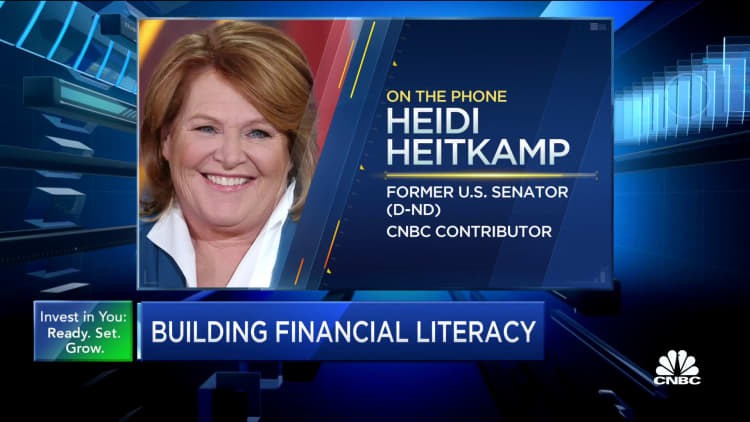The coronavirus pandemic has made parents pessimistic about their children's future, according to a survey by Pew Research.
More than two-thirds (68%) of U.S. respondents said they think today's children will be financially worse off as adults than their parents, up from 60% in 2019. Only 32% think children will be better off.
The global survey was conducted between Feb. 1 and May 26 among 18,850 adults in 17 advanced economies. The U.S. ranked No. 6 in pessimism towards children's financial futures, tied with Canada and behind Japan, France, Italy, Spain and Belgium.
When it comes to the current economic situation, 71% of Americans think it is bad, compared to 29% who believe it is good.
More from Invest in You:
Op-ed: Don't buy the argument against teaching personal finance in school
Here's how Black Americans can begin building wealth right now
These 6 psychological biases may be holding you back from building wealth
Children of the pandemic faced a double whammy of virtual learning and an economic recession. When schools shut down, classrooms shifted online. As a result they suffered significant learning loss, which translates into a reduction in lifetime earnings, studies have shown.
The economic fallout from the crisis also hit households across the country, leaving millions of Americans unemployed. Though the recession only lasted two months — from February 2020 to April 2020, according to the National Bureau of Economic Research, the recovery has been uneven.
Employment rates for high-wage workers are recovering whereas employment rates for low-wage workers are not, said David Grusky, a sociology professor at Stanford University.
"Although the pandemic safety net has addressed some of the resulting inequality, these divergent employment trends make it clear that there are still two Americas, a well-off America that's thriving and a struggling America that's poised to struggle yet more," said Grusky, director of the Stanford Center on Poverty and Inequality.

"This is a very troubling warning sign for the future."
To be sure, even before the pandemic, children were falling behind their parents' generation financially.
Over the past several decades, there has been a rapid deterioration of the "American Dream," which has long been understood as a commitment that each generation should do better than the one that preceded it, Grusky said.
Several studies back that up. For instance, a report by the nonpartisan think tank New America found millennials earn 20% less than baby boomers did at the same stage in life.
"Young adults in America today are on a much lower trajectory in their wealth accumulation than their predecessors," the paper stated. "Dramatically so."
A 2016 study co-authored by Grusky found that only half of those born in 1984 were earning more than their parents, compared to 92% of those born in 1940.
The main reason for the decline is that income inequality dramatically increased over this time period, Grusky explained.
"If the benefits of economic growth had instead been broadly shared, then a large swath of children would be doing better than their parents," he said.
In order to reverse the trend, that economic success has to reach everyone, he noted.
"It would solve the absolute mobility problem … and a great many other problems facing our country."
SIGN UP: Money 101 is an 8-week learning course to financial freedom, delivered weekly to your inbox.
CHECK OUT: 3 'easy, low-barrier ways' to add a new income stream, according to side hustle experts via Grow with Acorns+CNBC
Disclosure: NBCUniversal and Comcast Ventures are investors in Acorns.






